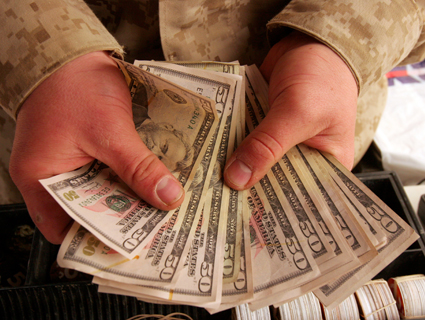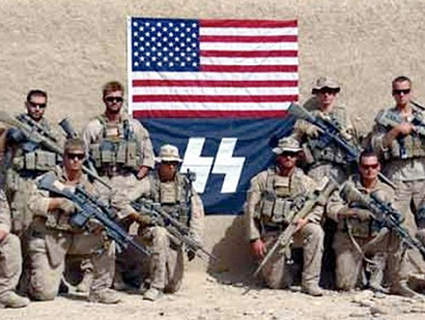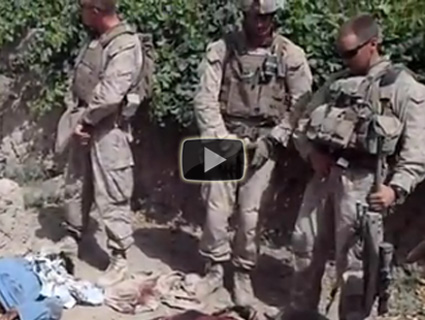On his show on MSNBC this Sunday, Chris Hayes dedicated an hour to the subject of Memorial Day. During the show, Hayes admitted that labeling all fallen American soldiers as “heroes” made him uncomfortable.
“It is very difficult to talk about the war dead and the fallen without invoking valor, without invoking the word hero. Why do I feel so uncomfortable about the word hero?” Hayes said. “I feel uncomfortable with the word hero because it seems to me that it is so rhetorically proximate to justifications for more war. And I obviously don’t want to desecrate or disrespect the memory of anyone that has fallen. Obviously there are individual circumstances in which there is tremendous heroism. You know, hail of gunfire, rescuing fellow soldiers, things like that. But it seems to me that we marshal this word in a way that’s problematic, but maybe I’m wrong about that.”
The backlash was as swift and fierce as one would expect.
Breitbart.com’s Kurt Schlichter argues that “the real problem for Chris Hayes is that he actually said what he thinks. He thinks our soldiers are suckers and fools at best, brutal sociopaths at worst. At a minimum, he feels that honoring those who died for this country might encourage people to see that actually defending our country is a good thing. He’s not quite ready to make that leap; after all, most progressives are ambivalent about this whole “America” concept, if not actively opposed to it.”
This is obviously silly. American conservatives carry on endlessly about the value of individualism, but when it comes to praising soldiers on their individual merits, rather than en masse, it’s suddenly downright anti-American. Chris Hayes is practically spitting on the troops, according to Schlichter, who does his very best to avoid context and nuance in favor of ad hominem and vitriol. It’s par for the course with all-things-Breitbart, but does a good enough job illustrating the cultural divide animating this dispute.
“What our post-9/11 national conformity insisted was that we heap praise on the police, firefighters, and the military without any discrimination between individuals or any judgment of their particular characters,” writes Freddie deBoer. “This, in fact, is not praise. It’s actually a profound assault on the possibility of real praise; it denies the existence of moral differences and squashes all actual praiseworthy conduct into a homogeneous, bland affirmation.”
If everyone is a hero, nobody is. The tyranny of mediocrity rears its ugly head.
In transforming our soldiers or police automatically into “heroes” we ignore the atrocities our own side commits. In doing so we also ignore the real moments of heroism. We give a free pass to anyone with a uniform and a gun regardless of their individual merit, and lend unwitting support to every war, from Iraq and Afghanistan to the War on Drugs, in the process.
I do find it strange that conservatives, so willing to defend individualism and up-by-the-bootstraps economics, would so fiercely defend what can only be described as a sort of collectivist militarism.
Certainly many soldiers are heroes. As Hayes himself points out, in an all-volunteer force each of these men and women have chosen to place themselves in terrible danger, often fighting for a vague cause in a distant land. Too often we as a society turn our back on this bravery, first by blithely sending our young people into poorly reasoned wars, and then by ignoring their plight once their service has ended. There is always enough money for weapons, but never enough for the broken young men who carry them.
I understand why Hayes has backtracked. Conservatives have been playing the patriotism card to their advantage for years. Liberals are uncomfortable with overt displays of patriotism in much the same way Hayes is uncomfortable calling all fallen soldiers heroes. For conservatives, heaping praise on the military and boasting about the greatness of America is a sort of signaling. Not so for liberals. The signaling is different on the left. The right confuses the left’s lack of patriotic-signaling for a lack of patriotism. But it’s more akin to different Christian denominations. Some wear their faith loudly on their sleeve, while others believe it impolite to publicly discuss their faith. Neither is inherently right or wrong. But simply saying more loudly that you believe in something doesn’t make it so.
At some point political discourse needs to abandon signaling and ground itself in actual ideas which convey actual meaning. Not every soldier is a hero. Some are mass murderers, torturers, and terrorists. We do a great disservice to the actual fallen heroes when we scrub away the meaning of the word and hand it out indiscriminately to all comers, out of some reflexive need to signal just how much we love our country—or how much we love our country more than others whose politics we dislike.
Erik Kain is guest blogging this week while Kevin Drum is on vacation.
















